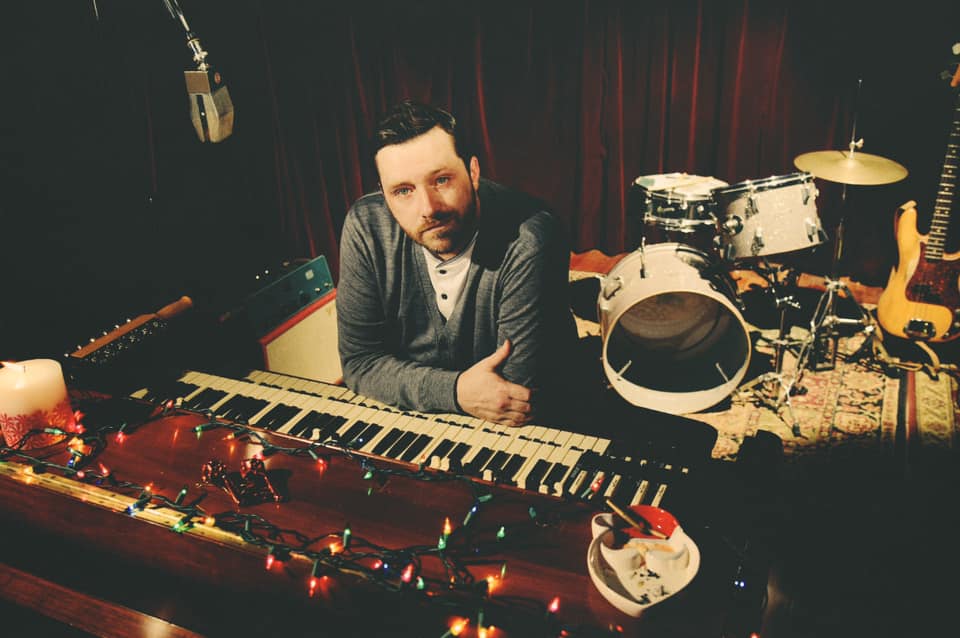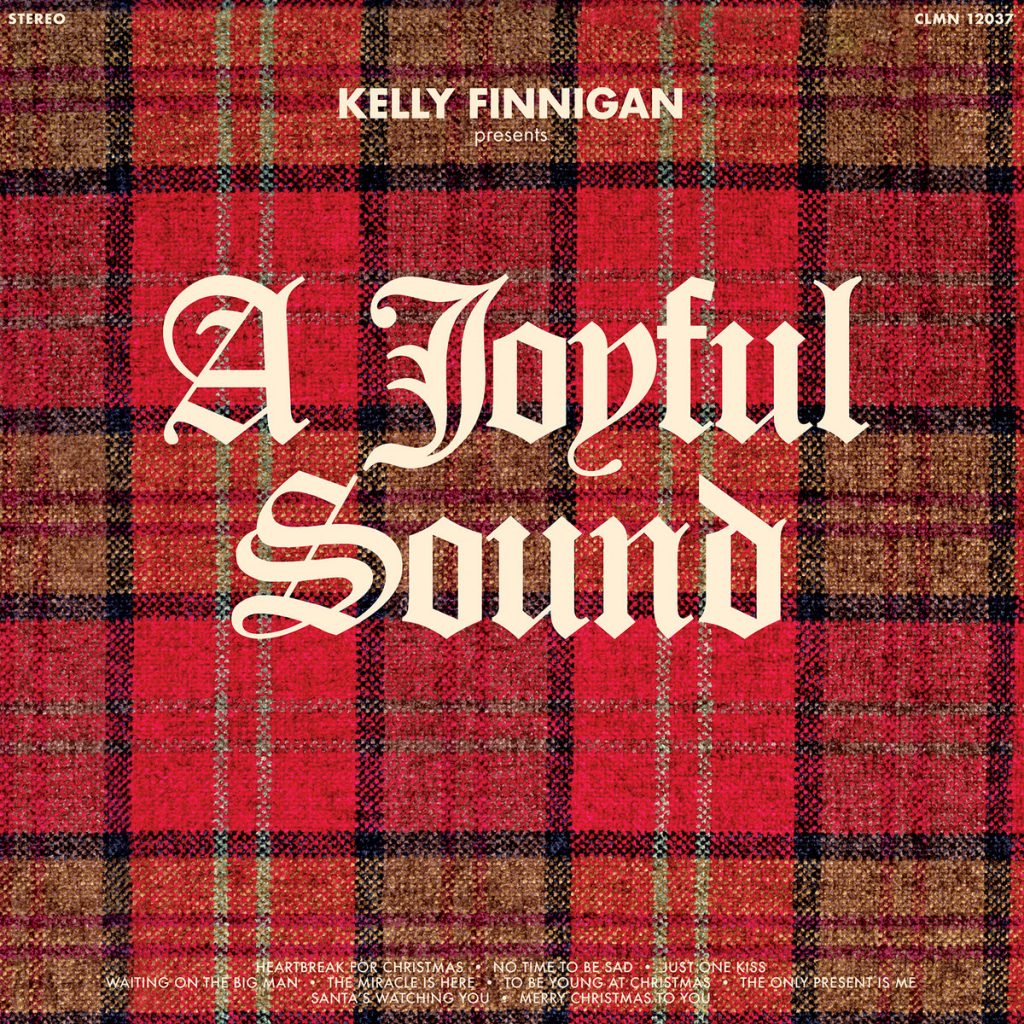Kelly, “A Joyful Sound” is your third full-album in just under two years (!), including your fabulous solo debut “The Tales People Tell” and the latest Monophonics’ album “It’s Only Us”. Do you feel yourself in a creative high right now?
Yeah, right now I really feel like I’m in a groove and all the hard work is paying off. Things are happening naturally while following a formula that works best for me to make records and create music. It’s taken some time and hours of trying things and experimenting but I feel great about how things have been going and am very excited for the future.
Holiday soul and R&B albums are a US tradition that goes back almost as far as the genre itself. Over the years, hundreds of artists have reinterpreted traditional Christmas classics. What appealed to you to record a Christmas album as well? And how long have you been playing with the idea of recording this album?
Well first what drove me to do it was the fact I dig good Christmas music. I grew up in a house where great Christmas music was played and embraced by my family. Second I think there’s a major lack for good original Christmas music. The most important thing to me that makes a great Christmas song before any arrangement, performance or production is the heart of the material and song. Does it feel honest and real? If it does it gets my attention. The fact that so many great artists continue to cover the same old songs year after year is pretty disappointing and disturbing on some levels. There’s more to be said about Christmas and written about at this point in our world and culture, so there’s no shortage of inspiration for new material. I started first thinking about a Christmas record years ago but it became a more serious conversation about 2-3 years ago with Terry from Colemine. We started production on it in May of 2019, took a long break and picked it up in April of 2020. Most of this record was made during the pandemic from April 2020 to July 2020.
With an all-star supporting cast of who’s who from the contemporary soul scene this record is truly a family affair for you. Featuring members of Durand Jones & The Indications, The Dap-Kings, Ghost Funk Orchestra and Monophonics, only to name a few. Please tell us a little bit about the collaborations and the recording and writing process.
As a producer & songwriter, I’m always thinking about the best personnel to achieve the best results. People that will bring something familiar yet original and unique to the music. I’m lucky that a lot of these great people are friends and I was thrilled to include them. Plus given the timing I felt extra good bringing work to people who are in an industry that’s been suffering all year. Unfortunately some of these collaborations were remote recordings which isn’t my preferred method but you know, when it comes to art, I’m always gonna try and make lemonade out of lemons. Half the record was written by myself and the other half was written with Terry Cole, the Ramey brothers, plus I turned a couple old soul and gospel songs into Christmas songs. I just took all my influences and all the Christmas songs I love and tried to apply that to some brand new songs. I produced and recorded most of the record at my studio Transistor Sound in the Bay Area but did a couple tunes in Ohio at Colemine’s HQ.
Soul and R&B holiday albums often have a political or socio-critical dimension in addition to the Christmas mood. You only have to think of James Brown’s “Santa Claus Go Straight To The Ghetto” or “Christmas In The City” by Marvin Gaye. Does your new album also have socio-critical aspects?
Yes, the song “Waiting On The Big Man” is about tougher times for people and the situation of not having enough money or resources to fully celebrate Christmas. So instead of a holiday you look forward to, you see it as a reminder of your shortcomings financially or traumatic situations that happened around the holiday. Christmas can be a burden and a very tough time for a lot of people. For some, their faith has been shaken in the fact that we don’t all look out for each other and make sure we’re all celebrating with love and togetherness, instead of shopping, capitalism and over consuming.
Which classic holiday albums are spinning on Kelly Finnigan’s record player during the Christmas season?
Rotary Connection’s “Peace”, Christmas with Mahalia Jackson, the Atlantic records comp “Christmas Soul”, Jimmy Smith’s “Christmas Cooking”, Nat King Cole’s “The Christmas Song”, Phil Spector’s “A Christmas Gift for You”, James Brown’s “A Soulful Christmas”, “More Christmas Sound” by Ramsey Lewis and Ray Charles’ “The Spirit of Christmas”. There’s more but I’ll stop there.
Kelly, this year it will be a very special, a very different, for many also a very lonely Christmas. Corona continues to have the world in its grip. Do you think that music, especially soul music, has the power to connect and comfort people in these difficult times?
I know for a fact that music brings people together. I’m lucky that I’ve been a witness many times to all different types of people coming together to enjoy music. It might be one of the main things that attracts me so much to doing what I do. But there’s a particular power in soul music that I think resonates a little deeper in human beings. Rhythm & Blues and soul records are very comforting but around this time I think it can be even more comforting to hear the voice of Otis Redding, William Bell, Minnie Riperton or The Ronettes.
When listening to your music, one inevitably has to think of the golden era of soul music, the 60’s, and artists like Otis Redding, Billy Stewart, Solomon Burke and Booker T. & the M.G.’s. An era that you have not personally experienced because of your age. Where do your musical roots lie and how did you finally come to classical soul music?
As I’ve stated before I grew up in a household where R&B, soul & jazz were king. My father’s biggest musical heroes are Ray Charles, Jimmy Smith, Etta James and Mahalia Jackson. I’ve been exposed to great soul music and great black artists my whole life. I’ve spent thousands of hours listening and absorbing this music as a student and someone who deeply loves the music. Of course as I came into my own as a teenager and young man I listen to a lot of hip-hop which is full of soul and R&B samples, lots of jazz, Boogaloo, funk, rock and roll, Afro beat, rare groove and anything else that moved me. But in the end no matter which genre I got hung up on, soul music was always something I went back to and felt connected to.
What fascinates you about this music era?
The raw energy, the soul, the power, the pain, the joy, and the connection to the church. It’s no secret that it was a simpler time back then and that included making records. I am definitely someone who thinks simpler is better when it comes to making records and making music. The most important things back then were writing a great song, recording it well with great musicians all together in a room, and presenting it in the form of a beautiful physical record with cool artwork and all the info you need about the session, musicians, arrangers, producers & engineers. These records in the information on them taught me so much about the craft of producing records well.
Your father Mike Finnigan is a music legend in his own right. He played keys with Jimi Hendrix, Joe Cocker, Etta James, Bonnie Raitt, and Taj Mahal to name a few. How important was he for your musical development?
He’s incredibly important, no doubt the most important. I learned so much from my father by just paying attention to how he conducted himself in the business. I learned about hard work, professionalism and the commitment to the craft which is very important in order to grow. There’s no one who has influenced me or inspired me more than my father.
Bands like the Monophonics and Durand Jones & The Indications keep classical, handmade soul music alive and successful. Why do you think this music genre is still relevant today?
I think because it’s real, it’s honest, it’s pure! It tells it like it is and doesn’t pull any punches. Most soul songs talk about the highest of the highest and the lowest of the lowest when it comes to life, love and loss. I think all these emotions really speak to all people, of all places.
Kelly, I last saw you live in Muenster in February. It was a terrific show, which once again showed what a joy and power you have on stage – and how important especially in soul music this exchange with the audience is. The Corona pandemic has stopped the whole concert business. How hard did that hit you? How much do you miss the stage?
Thank you so much, that was an incredible show and such a fun night. Definitely a highlight of the tour and it was so great to meet you in person. I’m really enjoying all the time at home and I’ve been super busy writing producing and making more records but I really really miss playing live. Some days it’s easy but some days it’s really hard and your heart aches to be back touring, traveling, connecting with fans old and new and the energy and feeling of being on stage with your band mates in a room full of people who love your music.
What are you planning next, Kelly?
I’m planning on making four records this year, for myself, Monophonics and other artists as well as finishing a couple more that I’m in the middle of making right now. I also have a few singles, special projects and 45s coming out throughout this next year. If everything goes as planned you might also catch me and Monophonics on tour in the states and in Europe in the fall of 2021.
A last Christmas related question: What must not be missing at a Finnigan family Christmas party?
It’s definitely got to be my dad at the end of the night sitting at the piano to play and sing a soulful and gospel soaked rendition of “Silent Night” which always brought the whole room to tears.
Kelly, thank you very much for the interview!


